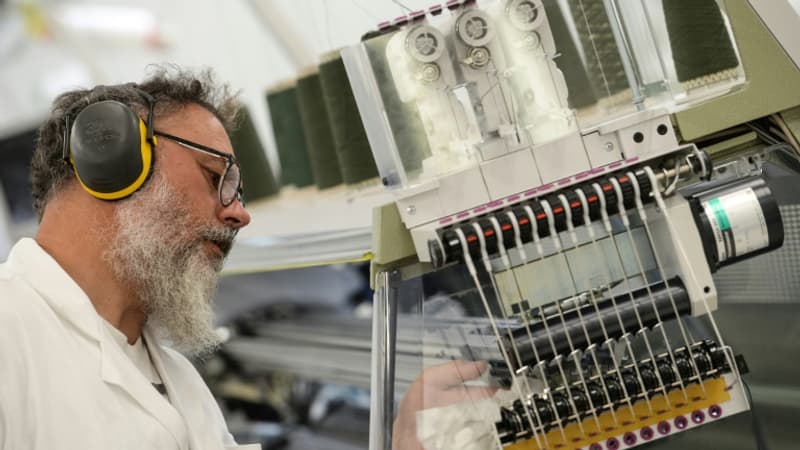The electricity transmission network operator RTE readily acknowledges this: Potential power outages could have financial consequences. While the drop of around 12% in electricity consumption in the secondary sector in recent weeks compared to the pre-pandemic reference period is welcome, the smaller structures of the French economic fabric also fear the outbreak of energy prices… and future load shedding operations.
The president of the FTPE makes a distinction between the fields of activity of very small companies that represent more than 95% of French structures and of which two thirds are in fact individuals. “Artisans who are often on the move are less affected and will control prices more at the pump, he explains. On the other hand, cuts would be catastrophic for merchants in the winter period.”
Varying range damage
In charge of Silicybine, a small workshop that sculpts glass objects, Stéphane Rivoal is one of those small artisans for whom a simple power cut can be detrimental. “I absolutely need electricity to run my ovens that run almost constantly, he stresses. Depending on when in the manufacturing process the load cut occurs, I could lose a part that I have been working on for a week.”
As soon as the first rumors about possible cuts during the winter appeared, several specialized companies registered a boom in their sales of generator sets. The manager of the 2AST company, Armand Alexanian, mentioned a 40% increase in a month at the beginning of the school year, which was mainly due to customers fearing these cuts.
This is how several retail chains have already been equipped with these tools.
As for many small structures, the purchase of a generator to avoid these power cuts represents too expensive an investment for master glassmaker Stéphane Rivoal. Same story for Christophe Bertrand, a chocolate maker running seven stores: “The cost of a generator would be too high for outages that would only occur occasionally.”
Although occasional, load shedding could nevertheless interrupt your activity if RTE resorted to it. “If we stop for two hours, the chocolate hardens and it takes two hours to start the machines up again and a candy that is stopped in its production is good to throw away,” he specifies, who fears more than anything a cut in the days before . to the decisive period of Christmas. If it’s in the morning, my employees can do other things with their day, but if it’s in the afternoon, they’ll have to go home.”
Hotline sharing, portable TPEs, and out-of-the-ordinary activity
Among the representative bodies, there is a call to relativize in the face of a scenario that is still in the hypothesis stage. “When we no longer have light, we no longer have Internet, which is why we recommend mobile solutions such as shared connection”, recalls the president of the FTPE. For his part, Christophe Bertrand has equipped his stores with portable electric payment terminals to be able to charge customers without electricity. Stuffed animal manufacturer Pioupiou & Merveilles is exploring the possibility of starting production two hours earlier, at 6am, to reduce the impact of possible cargo loss.
In reality, this problem of cuts is especially problematic insofar as it adds to other difficulties faced by smaller French companies. “My energy bill has already increased by 15,000 euros since March and I am not eligible at the counter because I do not meet the criteria of 3% of the billing, laments Christophe Bertrand. We are fatalists, we turn our backs. For example, we are thinking of stop the freezing of the chocolate at 20 degrees to put it back to 0 because it also works a priori.
“Aid has helped a lot in the face of lockdowns during the pandemic, but the recovery is behind it and many business leaders wonder when these difficulties will end,” insists Jean-Mathieu Delacourt. VSEs have the advantage of being flexible and flexible. adapt your activity according to load shedding, but we still recommend that you anticipate these cuts as best you can”.
Source: BFM TV


